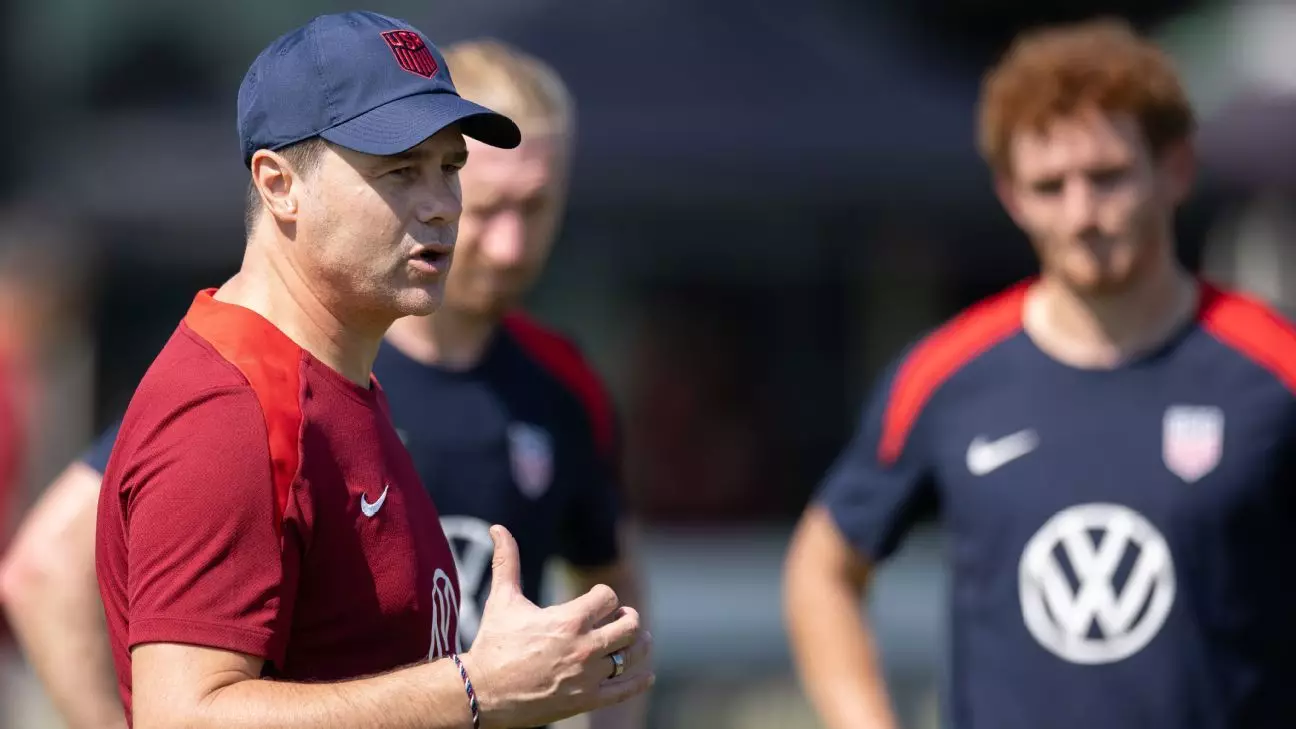In a recent press conference regarding the U.S. Men’s National Team (USMNT) preparations for their quarterfinal match against Jamaica in the Concacaf Nations League, U.S. manager Mauricio Pochettino expressed an encouraging perspective towards players in Major League Soccer (MLS). His statements reveal an important shift in how domestic talent is viewed on the international stage. Pochettino’s assertion that MLS players will have a fair chance to join the national team adds validity to the growing recognition of the league as a competitive environment for player development.
Pochettino, previously at the helm of Tottenham Hotspur, emphasized the quality of training and physicality within MLS. He acknowledged not only the challenges that players face but also their tactical acumen, suggesting that performances in MLS can parallel those in more established leagues, such as the Premier League or La Liga. This perspective might redefine how American players view their careers domestically: rather than seeing MLS merely as a stepping stone to international play, they can now view the league as a legitimate avenue for upward mobility within U.S. soccer.
Pochettino’s commitment to including MLS players in the national team setup illustrates a message of inclusivity and opportunity. He has openly stated that American players performing well in the league will be duly noted in his selections for the national team, particularly as the January training camp approaches. This kind of affirmation from the national team manager serves as a motivator for those competing in MLS, potentially raising the overall standard of play across the league.
Addressing players’ concerns directly, Pochettino reinforced that performance holds more weight than merely being part of the right club system. His comments signal a departure from previous biases favoring players in more prominent European fixtures. This shift not only enhances the confidence of domestic players but also aligns with the broader movement toward respecting and celebrating homegrown talent.
Pochettino’s Expectations and Competitive Landscape
Considering his relatively short time as U.S. manager, Pochettino has keenly observed the competitive culture in American soccer. He recognized the inherent pressure to win, a hallmark of U.S. sports culture. This acknowledgment brings to the forefront a crucial aspect of American soccer – the expectation to compete at the highest levels consistently.
By advocating for increased pressure and high expectations, Pochettino is poised to challenge the existing mindset surrounding the national team. During his tenure, he’s made it clear that he intends to cultivate a winning mentality, something that is essential not just for the short-term successes but for the long-term respectability of U.S. soccer on the world stage.
In his analysis of the team’s performance during the first leg against Jamaica, Pochettino noted signs of increased competitive spirit. This observation is pivotal as it reinforces the need for players to continually elevate their game if they wish to don the iconic U.S. jersey. Pochettino’s approach seems to focus not only on winning but also on creating an environment where players are encouraged to push their boundaries.
As Pochettino transitions the USMNT into a new era of competitiveness, the implications of his vision extend beyond immediate results. He appears to be crafting a legacy that emphasizes player development, inclusivity, and a deep-rooted expectation for excellence. By fostering an atmosphere where players are held accountable and are motivated to meet rigorous standards, Pochettino is effectively laying the groundwork for a stronger future for U.S. soccer.
Mauricio Pochettino’s perspective on MLS and the framing of competitive expectations for the USMNT play an essential role in shaping the future of American soccer. As the spotlight continues to shine on domestic players, both seasoned professionals and rising stars alike, the message is clear: performance is key, and talent will be recognized regardless of where it is found. This transformative approach holds the potential to elevate the U.S. national team, paving the way for improved performances on regional and global stages.

